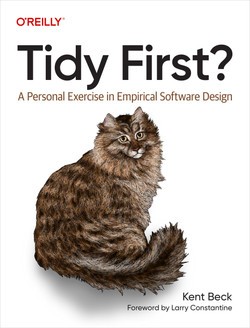Boggin hat Tidy First? von Kent Beck besprochen
Upgrade your programming technique
5 Sterne
Easily digestible short chapters that remind you of simple things you should be considering each time you touch code.
What Kent Beck is saying seems obvious but perhaps that's because he explains his views so well. I think this could turn any programmer on to writing better, simpler code.
Easily digestible short chapters that remind you of simple things you should be considering each time you touch code.
What Kent Beck is saying seems obvious but perhaps that's because he explains his views so well. I think this could turn any programmer on to writing better, simpler code.


